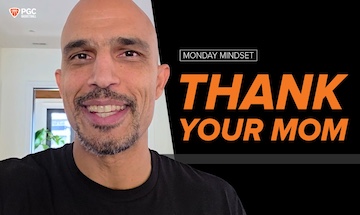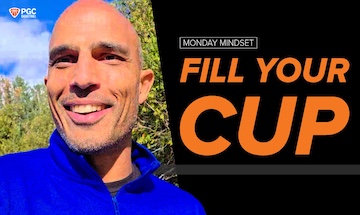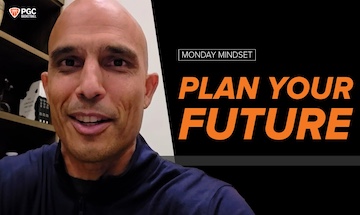Basketball Blog: Busy, Not Troublesome, Parents
No coach is immune from meddlesome parents. I remember Duke Coach Mike Krzyzewski having to put up with the father of his center, Mike Gminski. Gminski’s father took a year or two off work and moved to Durham, North Carolina, so he could watch his son. Sounds like a nice family thing, but it was a real pain in the butt for Coach K. The guy would sit back there behind the team and raise hell. Couldn’t he have been given some kind of responsibility so he could feel a part of things and not be so disruptive?
I would have tried to put a camcorder in his hands and to ask him to keep his son squarely in the middle of the screen so that his son’s performance could be evaluated perfectly. It would be useful for each player to have his own version of each game on film, and it would keep all the parents occupied, especially those who might otherwise be a problem for you. Not every team has parents with camcorders, but you get the idea. It makes sense to keep them busy in ways that can help your team.
I don’t mean to imply that all players’ parents are problems, but every coach has had those problems and, if hearsay has any validity, I would guess that parental problems are becoming more rather than less prevalent these days.
Utilizing the abilities of players, other coaches and parents during the games is one of the largely untapped areas available to most coaches. I’m not going to elaborate any further except to say that I think it is worth your time to sit down and carefully think about what information you could use or what tasks you would like to have done. Very often you could get most everything you want if you would take time to think about how to go about getting it.
A good coach needs to have a list of game and non-game stuff and who has responsibility for assuring that each aspect is handled.
Who will make sure a free-throw shooter gets blocked out aggressively, every time? Who will make sure the balls get in the rack? Who will carry the projector? Who will check on shoes, uniforms, and first-aid kit? Who will get the team warmed up? Who will count the lay-ups missed during warm-ups? Who will check on the team’s grades, homework assignments, visits to teachers, class attendance? Who will invite new people to games? Who will make sure that some little kids get the thrill of playing at halftime? Who is in charge of post-game snacks? Who is going to write thank-you notes to the local press reporters and photographers?
If you are doing all of these things yourself or not getting them done at all, you are not delegating enough responsibility. These are other people’s jobs, not yours. Your job is to see that a whole group of things gets done; there is not enough time to do them yourself.
Being a member of a high school or college basketball team should be a terrific experience for your athletes, not just a matter of attending practice each day and playing in occasional games.
What are some of the things that have worked successfully for you in keeping troublesome parents busy? What things have you seen others do, that have worked well?
Excerpt from Dick Devenzio’s critically-acclaimed book, Running the Show.
Related Articles
Monday Mindset: Thank Your Mom
Coming out of Thanksgiving, take a moment to appreciate the person who’s always had your back. A small “thank you” can mean more than you realize.
Monday Mindset: Fill Your Cup
When life doesn’t go your way, don’t rush past the disappointment. Sit in it. Feel it. Then shift to gratitude. This is how you turn heartbreak into growth.
Monday Mindset: Plan Your Future
When life doesn’t go your way, don’t rush past the disappointment. Sit in it. Feel it. Then shift to gratitude. This is how you turn heartbreak into growth.
About PGC
PGC Basketball provides intense, no-nonsense basketball training for players and coaches. Our basketball camps are designed to teach players of all positions to play smart basketball, be coaches on the court, and be leaders in practices, games and in everyday life.
We combine our unique PGC culture with a variety of teaching methods and learning environments to maximize the learning potential of those that attend our sessions. In addition to spending 6-7 hours on the court each day, lessons will be reinforced through classroom sessions and video analysis.
Our goal at PGC is to empower you with the tools to fulfill your basketball dreams, while also assisting you in experiencing the joy of the journey.
To learn more about PGC Basketball, including additional basketball training tips and videos, visit our YouTube Channel or find us on Facebook, Instagram, and Twitter.






Share This Post